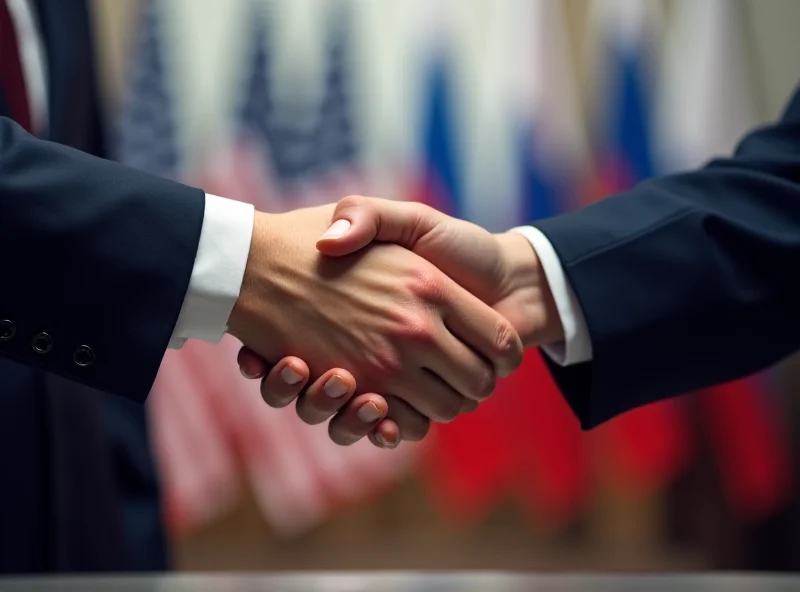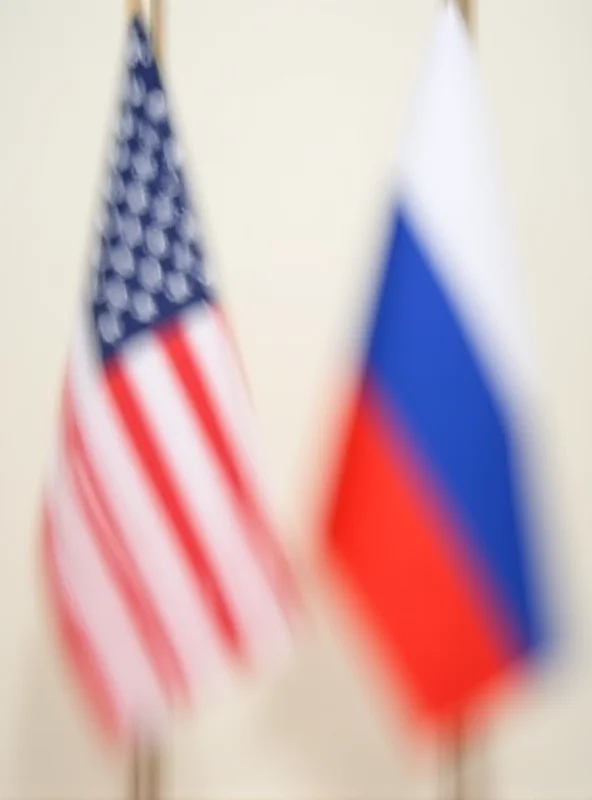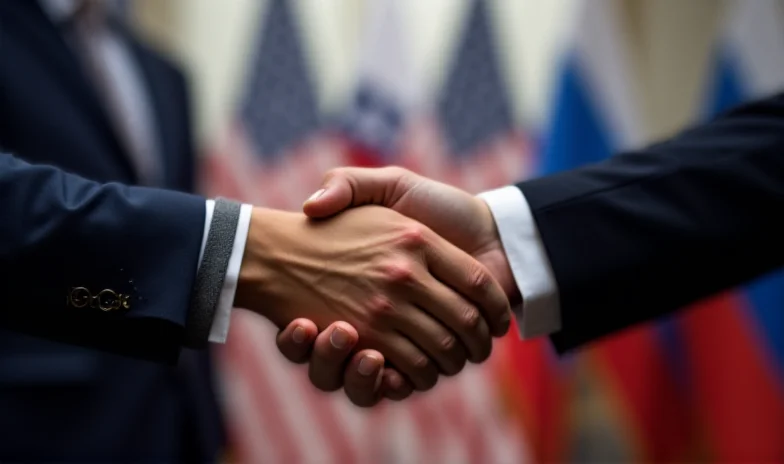Amidst a complex geopolitical landscape, the United States and Russia are engaging in discussions aimed at improving their strained bilateral relations. A primary focus of these talks is the normalization of operations for their respective diplomatic missions. Recent meetings, including one held in Istanbul, signal a potential thaw in relations, despite ongoing challenges such as the war in Ukraine.
Early Optimism and Dialogue
Russian President Vladimir Putin has expressed cautious optimism regarding early contacts with the U.S. government, particularly during the initial stages of the Trump administration. In a televised comment to the FSB security service, Putin hinted at the possibility of more substantial talks, emphasizing a "reciprocal attitude to restore relations." This sentiment suggests a willingness on both sides to find common ground and rebuild trust.

However, Putin also cautioned against external interference, specifically warning Europe against attempts to "disrupt the Washington-Moscow dialogue." He praised the United States as a potential partner, highlighting the rapidly changing global dynamics and the importance of direct communication between the two nations.
"The world is changing fast and the first contacts with the USA are promising, with a reciprocal attitude to restore relations," Putin stated, underscoring the urgency and potential benefits of renewed diplomatic engagement.
Challenges and Complexities
While diplomatic efforts are underway, the relationship between the US and Russia remains complex and fraught with challenges. The ongoing war in Ukraine, as highlighted by news agencies reporting on the Istanbul talks, casts a long shadow over any potential rapprochement. The six-hour-long discussions in Istanbul underscore the depth and complexity of the issues at hand.

Furthermore, historical factors and differing ideologies continue to pose obstacles. As one volunteer recounted their experience at a Russian orphanage, the stark realities of life in certain regions of Russia can present a contrasting perspective to the high-level diplomatic discussions. The volunteer's experience, described as resembling a "Dickensian workhouse," offers a critical view of societal issues that may indirectly impact international relations.
Looking Ahead
Despite these challenges, the ongoing dialogue between the US and Russia represents a crucial step towards stabilizing international relations. The normalization of diplomatic missions is essential for effective communication and conflict resolution. Whether these early signs of hope will translate into lasting improvements remains to be seen, but the commitment to dialogue is a positive development in a turbulent world.

